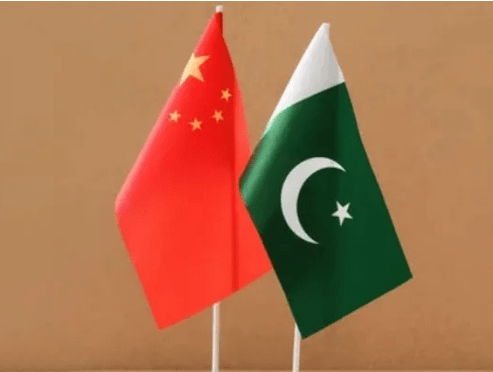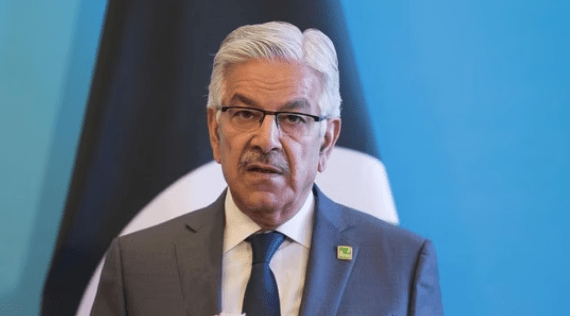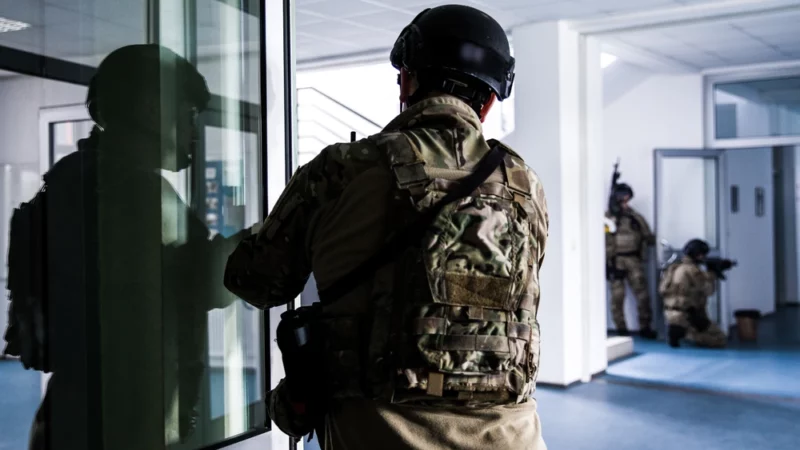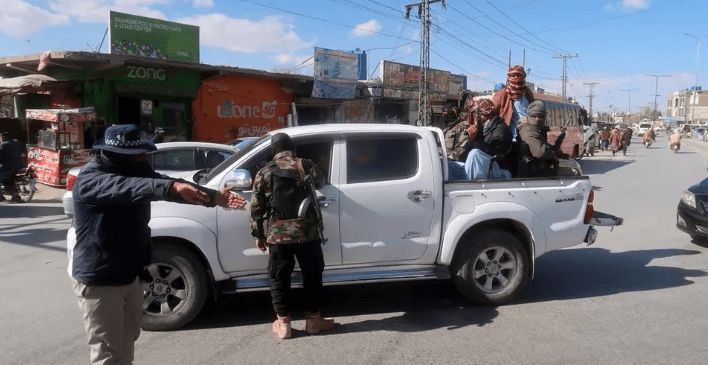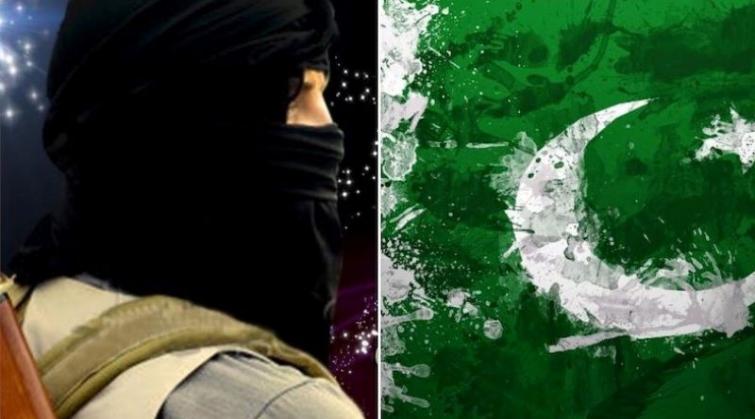The Path Pakistan and India Traveled
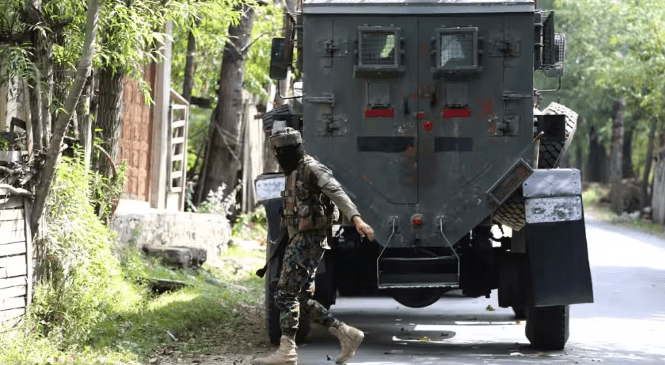
This statement points again to the omnipotent influence of the Army in Pakistan’s politics on the one hand, and on the other, reveals the existence of well concealed “dirty laundry” within the armed forces establishment.
It’s no secret that today Pakistan is overwhelmed by a host of extremely serious adverse security, economic and political issues that are showing no signs of receding and due to this unprecedented crisis, it continues plummeting towards disarray and a possible implosion. Though this self-created catastrophe has impacted the entire country, due to Islamabad’s discriminatory policies, PoK remains one the worst affected areas.
However, the same cannot be said about India as it is doing exceptionally well in terms of financial and infrastructure growth. Not only this, New Delhi earned international praise for its beyond the call of duty for contributing and sending medicines and vaccines to 150 countries during the Covid-19 pandemic (2020-2022),
Moreover, unlike Islamabad which continues to neglect PoK, New Delhi has placed development of J&K on high priority by taking the decisive step of abrogating Articles 370 and 35-A, which legally denied Kashmiris the opportunity to benefit from government schemes and initiatives meant for improving quality of life for the masses.
By bifurcating the erstwhile state of J&K into two separate union territories the center has been able to ensure undivided focus on building up political as well as socio-economic stability that had been upset due to years and decades of strife on account of Pakistan sponsored terrorism.
Drawing a comparison of what drives or derails developments in these two major nations of South Asia today makes for interesting reading. So, let’s take up Pakistan first.
Two recent interviews – one of Pakistan Tehreek-e-Insaaf (PTI) leader and former minister Sheikh Rashid, and the other of former three-time Prime Minister, Mohammad Nawaz Sharif brings home the sad truth about a nation that is in steep socio-economic decline and beholden. This problem has always been there since the mid-1950s, primarily as Pakistan’s all-powerful army has always been dictating both the country’s foreign and domestic policy.
Sheikh Rashid, who has been an outspoken supporter of PTI founder and former cricketer Imran Khan said this week that Khan made a big mistake in getting on the wrong side of the Army, which for all practical purposes is a “State within a State” in Pakistan.
“I believe Imran Khan and the PTI made a big mistake in objecting to the selection of Lt. Gen Asif Munir as the next Chief of Army Staff of Pakistan. We (PTI) should never have interfered as this is the prerogative of the Pakistan Army establishment to decide who their next chief will be,” said Rashid.
“Who is senior, who is not senior, what are the problems within the Pakistan Army, if any, should never have been Imran Khan or the PTI’s concern. We should have stayed clear of this,” he added.
This statement points again to the omnipotent influence of the Army in Pakistan’s politics on the one hand, and on the other, reveals the existence of well concealed “dirty laundry” within the armed forces establishment.
Exploiting the weaknesses in the country’s civilian and administrative establishment, the army has time and again been very successful in consolidating its position as “a parallel political and economic power operating without any civilian oversight.”
Take the case of former COAS, Gen. Qamar Javed Bajwa (Retired). Before hanging up his boots in November 2022, media in Pakistan claimed that his family and he managed to become billionaires. One report by Fact Focus claimed that Gen. Bajwa and his family managed to increase their wealth to 12.7 billion Pakistani Rupees (approximately USD 47 million).
He has since been replaced by Gen Munir, who within a short span of eleven months has ensured the collapse and exit of the Imran Khan-led PTI government. This has given a fresh political lease to the Nawaz Sharif/Shehbaz Sharif-led Pakistan Muslim League-N (PML-N), and managed to allegedly implicate Imran Khan in a series of criminal and corruption-related cases with the help of a compliant judiciary and political establishment. By reshuffling the army top brass to suit his needs, Gen Munir has secured his position as the most powerful man in Pakistan.
Unfortunately, just like his predecessors, Gen Munir has not succeeded in ridding the all-powerful Pakistan Army of corruption. Reports appearing in the public domain reveal that the Pakistan armed forces establishment is also a huge business conglomerate earning over USD 26.5 billion annually. It is a conglomerate run under and by many names such as the Askari Foundation, the Fauji Foundation (Pakistan Army), the Shaheen Foundation (Pakistan Air Force), the Bahria Foundation (Pakistan Navy), the Army Welfare Trust, the Defence Housing Authority.
The stated objective of these organisations is to ensure the wellbeing of armed forces personnel and their families. But it’s a well-known fact that the bulk of beneficiaries are senior officers, who also get many other substantial post-retirement benefits.
The armed forces are involved in almost every field of the Pakistan economy, ranging from real estate, fertilisers, cement manufacturing, wind and solar energy etc. Over a dozen public sector units are controlled by the armed forces as well, which leads one to wonder whether the Pakistan army leadership is seriously involved in their primary task of defending their country’s borders or in running commercial enterprises?
According to new report , “The Officer Corps puts forward a narrative to legitimise their economic ventures and conceal their predatory, kleptocratic behavior”. The army’s Inter-Services Public Relations (ISPR) is its propaganda machine in the truest sense, that projects “an image of the army as the only institution with the will or capacity to protect Pakistan.”
The other significant development is the return of three-time former Prime Minister Nawaz Sharif to Pakistan after a gap of four years of self-imposed exile. At 73, he seems ready to make a political comeback in January 2024, and has already ruffled feathers of the army and radicals by calling for better relations with India, and maintaining that Islamabad cannot afford to remain isolated from New Delhi interminably.
In a PML-N rally in Lahore soon after his arrival on Pakistani soil, Sharif said “Pakistan has to try and stand on its feet again. Our honour and prestige as a nation is at stake and we need to rejuvenate it. We have to end unemployment and poverty in Pakistan. We need to think of better policy making. We need to rebuild our connections with our neighbours (read as India) and the world. We cannot be at loggerheads with our neighbours and have good relations with the rest of the world. We have to have good relations with all, and to resolve the issue of Kashmir, we need to move forward with a fresh mind and good planning….”
Does Sharif’s return bode well for Pakistan, for its people, or its economy remains a million dollar question yet to be answered. The people of Pakistan will need a lot of convincing to believe so, knowing that in the past he, his family and the PML-N have been involved in rampant corruption.
The PML-N hopes Sharif can still use his political clout and his “man of the soil” identity to revive the party’s flagging popularity in the midst of socio-economic free fall. For now, he has been granted protective bail till October 24 by the Islamabad High Court, removing the threat of him being arrested.
Let’s now review India’s standing in South Asia. In contrast to Pakistan, India is marching forward with vigour. It has grown at an average annual pace of 6.6 percent in the last decade. In 2022-23, it had a growth rate of 7.2 percent and it has outperformed most other major economies, including China. The International Monetary Fund (IMF) has predicted that India will continue to grow by over six percent in the next few years and is on track to be the world’s third largest economy. All of its socio-economic indices for and on development point it out as an emerging and promising market for the rest of the world.
Pakistan in contrast has a deflating Inflation of 21.3 percent, the highest since December 2008 when inflation stood at 23.3 percent. It has to service a loan of USD 2.3 billion taken from a Chinese consortium of banks; floods have caused economic losses of over USD 30 billion dollars and at the end of September this year, its foreign currency reserves stood at an abysmal USD 13.079 billion, which was a slight improvement over USD 10 billion that it had in the week ending September 8. Last December, it was at an almost four-year low of USD 6.7 billion. It has foreign exchange reserves equal to just five weeks of merchandise imports.
With Islamabad continuing to depend on foreign borrowing to stay afloat and the army refusing to cut down on its lavish defence expenditure, the Pakistani rupee is consistently depreciating due to which the country will stay in a state of deep economic crisis for quite some more time.

